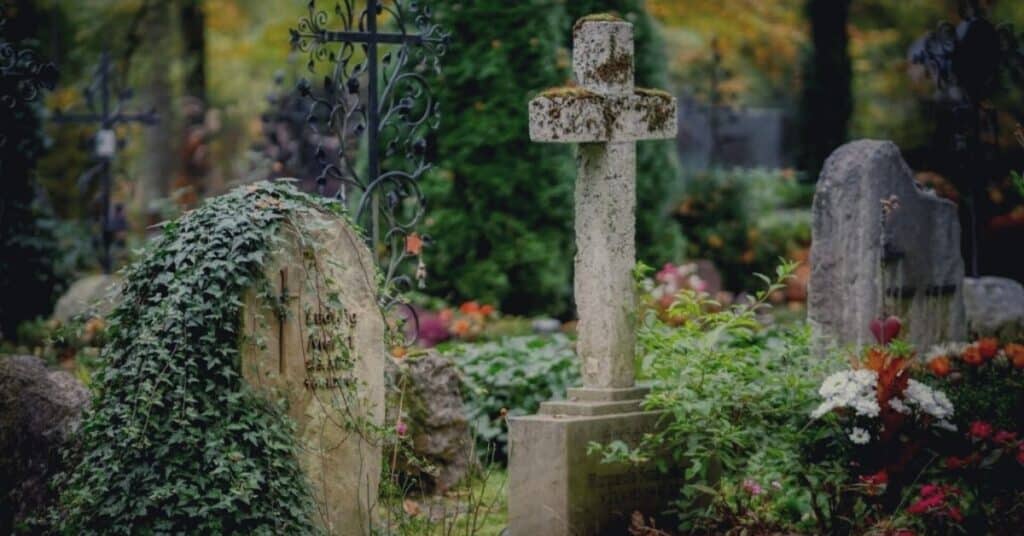Disinter Remains Legally in New York
When a loved one is laid to rest, the last thing you might want to do is to disturb their peace. However, there may be times when it is necessary to disinter remains and do so. For example, there may be a post-deceased spouse whose ashes need to be placed into a double urn. Alternatively, you may need the remains to prove kinship. Or, the family may not be satisfied with the burial location and may want to alter it. Or the family wants to move the loved one to a family burial ground or back to his or her home country, or simply, the niche or plot is no longer a suitable resting place.
Whether the move is to another country or to another spot in the Cemetery, it involves a lot more than just submitting a form and paying for the disinterment expenses. Even if you have a contract with a Cemetery to bury a second person in the same spot, the Cemetery may refuse your request. In addition to approval from the Cemetery to disinter remains, you will also need consent of the plot owner(s) and certain family members. When all parties cannot reach a consensus, or, when the family members do not exist to provide the necessary consent, then you can only disinter remains upon receipt of a Court Order to do so.
Who May Disinter Remains?
Under New York Law (N-PCL §1510(e)), Court Order is not necessary if the you have the consent of the Cemetery holding Decedent’s remains, owner(s) of the lot, the surviving spouse, Decedent’s children, and Decedent’s parents to the disinterment. However, if any one, i.e. the Cemetery, surviving spouse, adult child, parent or the owner(s), refuses, you will need a Court Order to disinter the Decedent’s remains.
Pursuant to New York Public Health Law 4201(2)(a), the following people having descending priority to control the disposition of Decedent’s remains and, therefore, have standing to petition to disinter remains:
(i) the person designated by the Decedent in a written instrument to control Decedent’s remains;
(ii) the decedent’s surviving spouse or surviving domestic partner;
(iii) any of the decedent’s surviving children eighteen years of age or older;
(iv) either of the decedent’s surviving parents;
(v) any of the decedent’s surviving siblings eighteen years of age or older;
(vi) an appointed guardian;
(vii) any person eighteen years of age or older who would be entitled to share in the estate of the decedent through intestacy, with the person closest in relationship having the highest priority;
(viii) a duly appointed fiduciary of the estate of the decedent;
(ix) a close friend or relative who is reasonably familiar with the decedent’s wishes, including the decedent’s religious or moral beliefs
(x) a chief fiscal officer of a county or a public administrator or any other person acting on behalf of the decedent
How do you Disinter Remains?
An interested party, from the list set forth in the prior paragraph, will need to submit an Application to the Supreme Court in the County holding the remains explaining the reasons for the need to disinter remains. The application may be brought by Order to Show Cause or Notice. You should check the county rules as different counties vary with their procedure.
Along with the application, you should include a copy of Decedent’s Death Certificate, information about the Cemetery, and deed to prove ownership of the plot. If you have consents from certain family members, you should include the consents along with the petition. If all waivers and consents cannot be obtained, the Court will set a hearing to listen to any objections to disinterment. This process usually takes about 1-2 months.
What Happens after?
If no parties, i.e. the Cemetery or another interested party, objects to disinterring Decedent’s remains, then the Court will issue an Order directing the Cemetery to disinter the remains. Of course, you would have to pay any costs related to the disinterment. If the remains need to be removed to another Cemetery, a licensed funeral director will need to be involved in order to handle the transport of the remains.
We can help you petition to Disinter Remains. Contact us today for more information.
For more information, please contact NYC Probate Litigation, Guardianship, NYC Probate and Estate Planning attorney Regina Kiperman:
Phone: 917-261-4514
Fax: 929-556-2089
Email: rkiperman@rklawny.com
Or visit her at:
40 Wall Street
Suite 2508
New York, NY 10005
Visit Regina on LinkedIn
Visit Regina on Facebook
This page is made available by the lawyer for educational purposes only as well as to give you general information and a general understanding of the law, not to provide specific legal advice. By using this site you understand that there is no attorney client relationship between you and the lawyer. The post should not be used as a substitute for competent legal advice from a licensed professional attorney in your state. ATTORNEY ADVERTISING.
